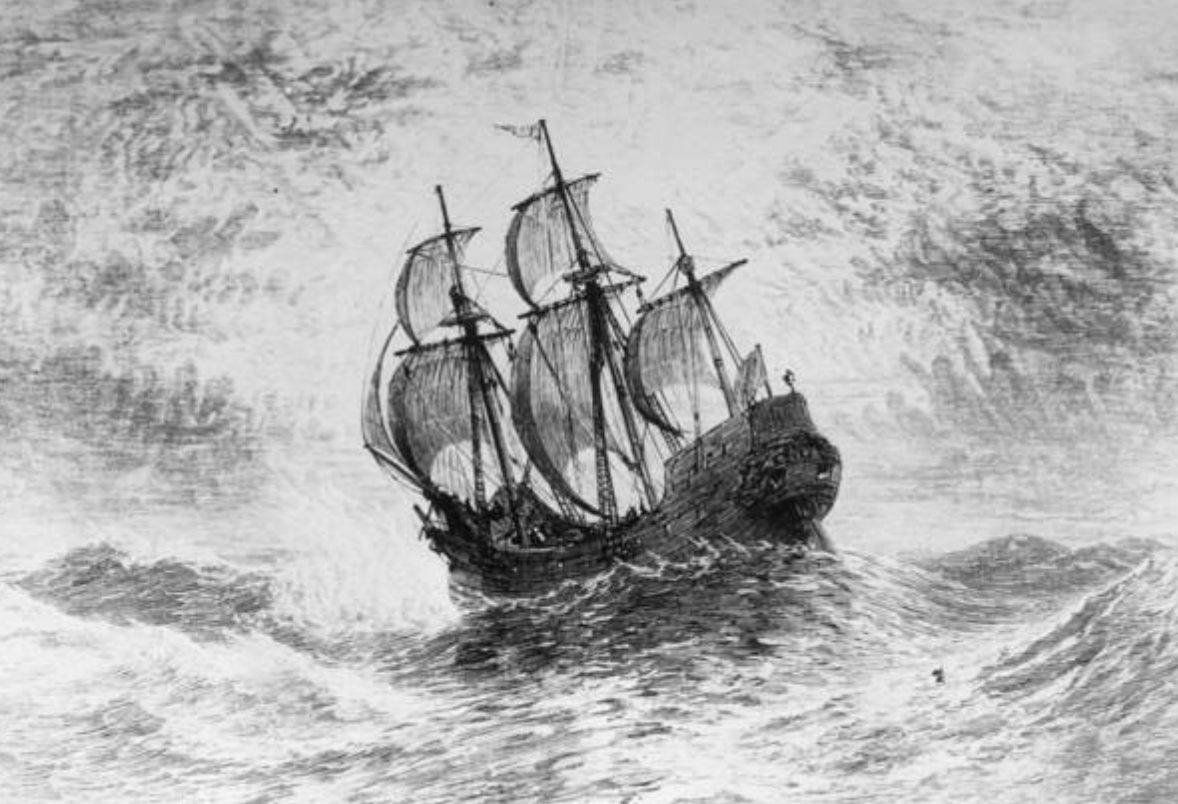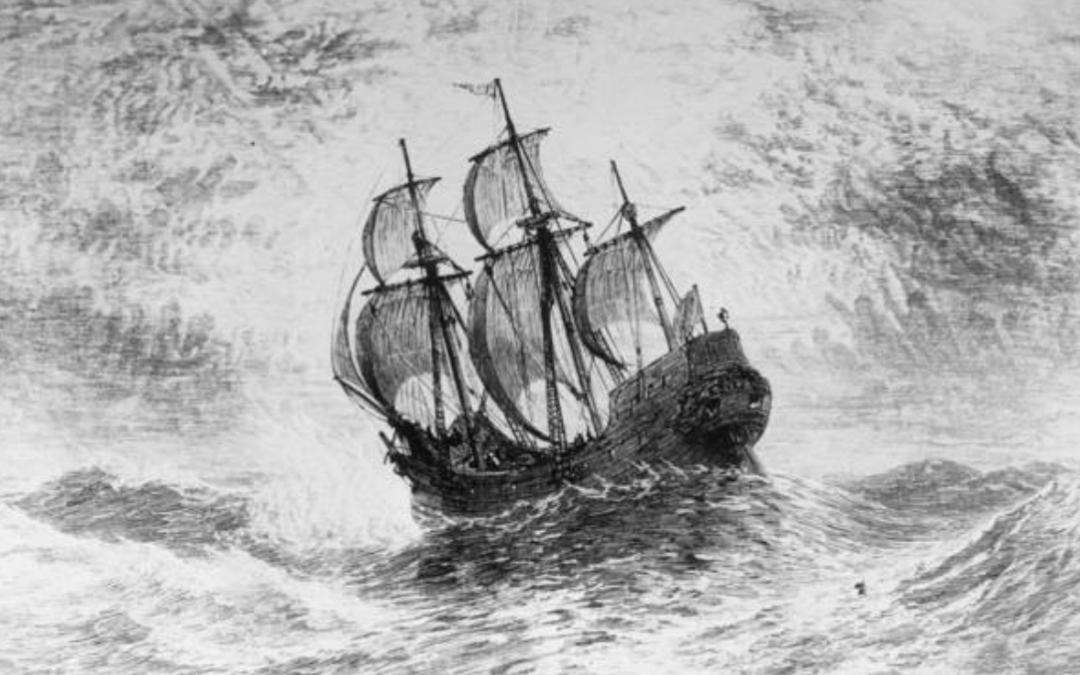
You want to do something for God. Good for you! Don’t give up! But be a student of history to gain perspective. Scripture tells us to be students of His-Story.
“These things happened to them as examples and were written down as warnings for us…”
1 Corinthians 11:10
“For everything that was written in the past was written to teach us, so that through endurance and the encouragement of the scriptures we might have hope.”
Romans 15:4
Perspective is vital! We gain perspective by being aware of the difficulties others have overcome to achieve their goals. For example, let’s consider the voyage of the Mayflower, the ship that brought Pilgrims to the new world in 1620. They experienced enormous opposition.
Before They Sailed
- The first sea captain they hired to get them out of England was a traitor. At the shore, he turned them over to English authorities. The Pilgrim leaders were jailed for months. In a second attempt, some men were abroad their fleeing vessel when the militia showed up. The captain sailed with those already on board. It was months before families were re-united in Holland.
- The congregation of 600 Pilgrims that moved from England to Leiden, Holland (they stayed there 12 years), thinned to 200 and then further reduced to the 50 who actually sailed.
- With the exception of Jamestown, all other attempts to establish permanent English settlements on the North American continent had failed. And to think of Jamestown as a success is a stretch. Founded in 1607, seventy of the original 108 settlers died. The following winter was the “starving time” when 440 of 500 newly arriving settlers died in just six months. Starvation and disease claimed a frightful toll.
- While in Holland, disturbing news came from London. A group very similar to their own had recently met with disaster on a voyage to America. Under the leadership of a Mr. Blackwell, 180 sailed for Virginia. By the time the ship arrived, 130 had died. Many Leiden Pilgrims ceased to think about going to the New World.
- Some Dutch – having made an offer to help the Pilgrims, which they rejected – worked against the Pilgrims. They wanted Manhattan (the future New York City area and the intended destination of the Pilgrims) for themselves so they sought to delay their sailing from Europe.
- Instead of working with the Dutch, the Pilgrims fell under the sway of smooth-talking Thomas Watson and the Merchant Adventurers who saw colonization as a financial venture and a way to “plant religion.” The terms were that the Merchant Adventurers would fund the colony in exchange for the Pilgrims working four days a week for them and two days a week for themselves. When the M.A. changed the terms to work six days a week for them, a Pilgrim leader accepted this change without consulting the whole Pilgrim community, which created all kinds of stress and disagreement.
- Adding to the alarm of it being June (late in the sailing season), the Merchant Adventurers insisted on adding some non-Christian, non-Pilgrims to the group. Would these non-believers accept the Pilgrims? One man – Christopher Martin – was immediately most difficult. The Pilgrims knew how divisive the mixed multitude had been for Moses during the 40 years of wilderness wondering (see Exodus – Deuteronomy). Later, William Bradford, a Pilgrim leader, described one such “Stranger” family as “one of the profanest families amongst us.”
Many problems and stress point worked against progress. Legal battles prevented progress. Team work seemed impossible some times. Good people can be at odds with one another. Many obstacles arose, but the Almighty is at work.

Recent Comments